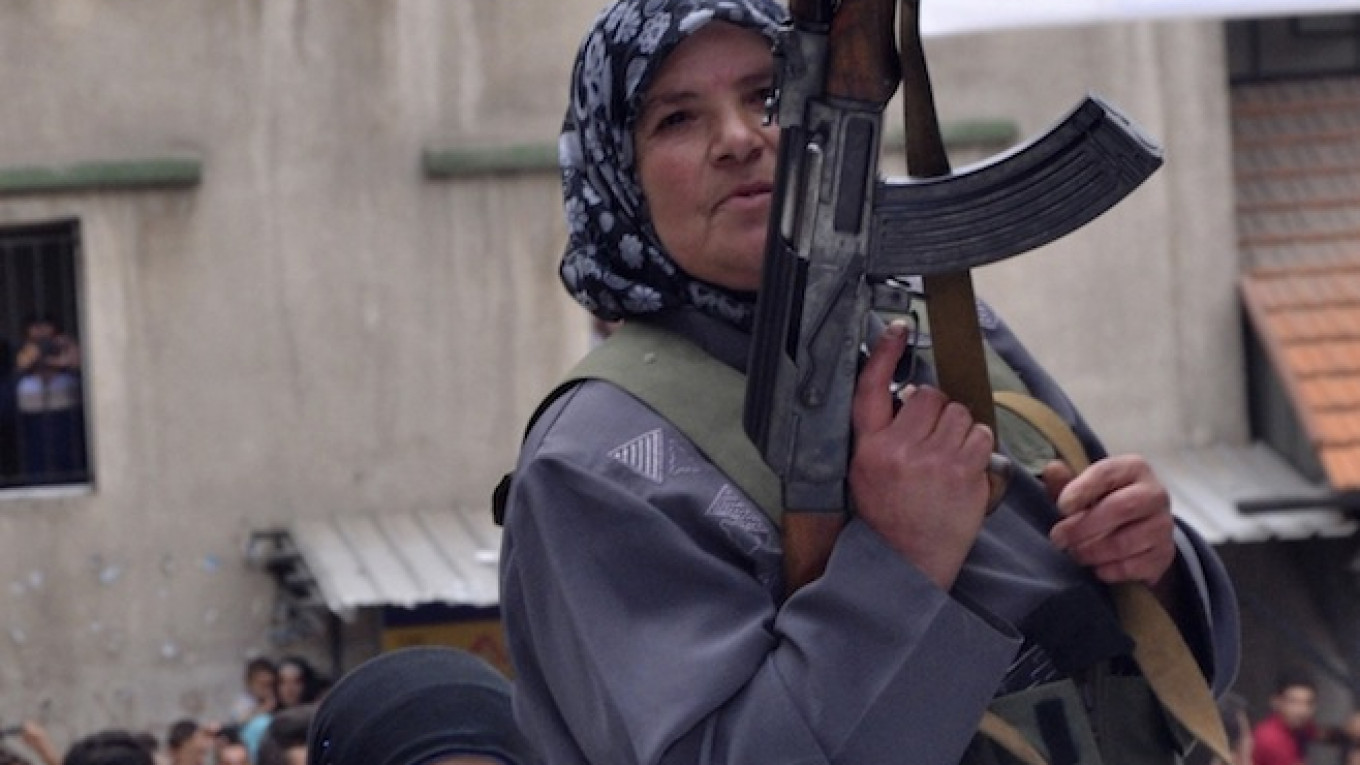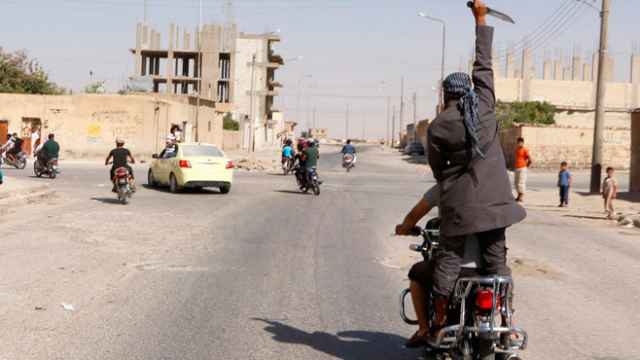Russia's Security Council has sounded the alarm about Islamic State fighters from former Soviet countries returning home "politically and religiously 'loaded,'" TASS news agency reported Friday.
"We understand that these people, having gained military experience and on top of that being religiously and politically 'loaded,' upon returning home can pose a serious threat to the national security of their own countries," Nikolai Patrushev, secretary of the Security Council, was cited as saying at a meeting of the council Friday.
There have been numerous reports of men from Tajikistan, Azerbaijan, Armenia and Uzbekistan fighting alongside anti-government rebels in Syria, some of them reportedly with the Islamic State. Several men from Russia's turbulent North Caucasus have also been detained and charged for allegedly fighting in Syria.
Patrushev estimated the Islamic State's manpower at between 30,000 and 50,000 fighters, adding that "this is a serious force that without the necessary countermeasures is capable of destroying the system of interstate relations and security that currently exists in the world."
Patrushev is not the first Russian official to warn of the potential dangers of militants returning from Syria to Russian soil or the territory of former Soviet republics.
In late August, Ilya Rogachyov, head of the Foreign Ministry's department on new and rising threats, said the Islamic State could pose a major ideological threat to Russia.
"From an ideological standpoint, there are no limits to the Islamic State's expansion. And we're not talking only about the southern regions of Russia. They would be focused on all Muslim regions," Rogachyov said in comments to Interfax at that time.
Last September, Russia's Federal Security Service estimated that about 400 Russians were fighting in various militant factions in Syria.
A Message from The Moscow Times:
Dear readers,
We are facing unprecedented challenges. Russia's Prosecutor General's Office has designated The Moscow Times as an "undesirable" organization, criminalizing our work and putting our staff at risk of prosecution. This follows our earlier unjust labeling as a "foreign agent."
These actions are direct attempts to silence independent journalism in Russia. The authorities claim our work "discredits the decisions of the Russian leadership." We see things differently: we strive to provide accurate, unbiased reporting on Russia.
We, the journalists of The Moscow Times, refuse to be silenced. But to continue our work, we need your help.
Your support, no matter how small, makes a world of difference. If you can, please support us monthly starting from just $2. It's quick to set up, and every contribution makes a significant impact.
By supporting The Moscow Times, you're defending open, independent journalism in the face of repression. Thank you for standing with us.
Remind me later.






